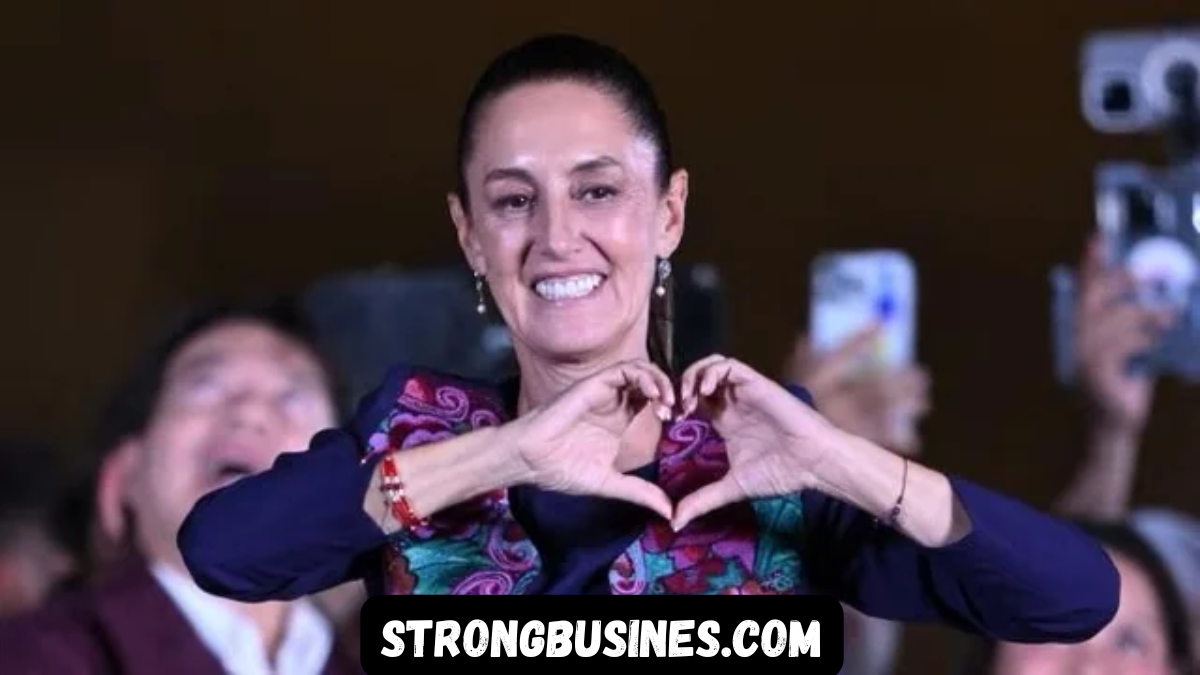Carlos Sheinbaum Yoselevitz is a name that has garnered increasing interest, particularly in political and academic circles in Mexico. Known for his deep involvement in social, economic, and public policy affairs, Carlos Sheinbaum Yoselevitz has managed to create a unique space for himself within the intellectual and political frameworks of contemporary Mexico. He is often recognized not only for his academic contributions but also for his familial connection to Claudia Sheinbaum Pardo, the President of Mexico. However, Carlos’s work and legacy extend beyond associations and delve into areas of substance that reflect a commitment to education, progress, and public service.
Family and Early Life
Carlos Sheinbaum Yoselevitz was born into a family of intellectuals and academics with deep Jewish roots in Mexico. His family background significantly influenced his worldview, shaping his approach to social and public issues. The Sheinbaum family, known for their dedication to science, politics, and civic responsibility, provided a fertile environment for Carlos to develop a strong intellectual foundation. Although much of his early life remains private, his upbringing appears to have instilled in him a respect for knowledge, social justice, and civic duty.
His family’s immigrant history, rooted in Jewish heritage, mirrors the broader story of many who arrived in Mexico during times of political unrest in Europe. This heritage played a key role in forming his sense of identity and civic engagement. The values of Carlos Sheinbaum Yoselevitz social contribution would go on to define his personal and professional ethos.
Educational Background
Carlos Sheinbaum Yoselevitz pursued a rigorous academic path that emphasized research, policy analysis, and public affairs. Though exact details about his academic achievements are not extensively publicized, it is widely accepted that he holds advanced degrees in fields related to public policy, administration, or economics. The Sheinbaum family is strongly associated with academic excellence, with multiple members engaging in scientific and policy-driven disciplines. Carlos followed suit by contributing to the dialogue on key socio-political topics in Mexico.
His education likely includes training at some of the country’s leading institutions, which allowed him to cultivate a deep understanding of structural challenges in governance, economic disparity, and societal development. The analytical framework he developed during his academic journey became essential to his later roles in advisory and policy-making capacities.
Professional Career and Contributions
Carlos Sheinbaum Yoselevitz has taken on various roles throughout his career, ranging from academic research to direct involvement in public sector planning. His work has focused heavily on the betterment of civil structures, addressing inequalities, and fostering educational reform. He is known for being analytical, forward-thinking, and pragmatic when it comes to assessing public policies and suggesting improvements.
One of his notable contributions has been in the realm of urban development and sustainability. His understanding of socio-economic factors has allowed him to critique urban policies while also suggesting sustainable models that balance growth with equity. Carlos has often spoken or written about how cities like Mexico City need to reinvent themselves to become more inclusive, environmentally sustainable, and socially balanced.
Moreover, Carlos has participated in think tanks and policy forums where discussions around labor rights, economic development, and transparency in governance are central themes. His insights are grounded in empirical research and guided by a vision of long-term development rather than short-term political gain. These contributions have helped shape conversations around public administration in Mexico.
Political Philosophy and Ideological Orientation
Carlos Sheinbaum Yoselevitz aligns with progressive values that emphasize social justice, economic equity, and participatory democracy. His ideological views are influenced by his family’s left-leaning political background. Claudia Sheinbaum Pardo, his sister, is a prominent leftist figure, and their collective vision reflects a shared commitment to inclusivity and the public good.
Carlos has been particularly vocal about the importance of education as a tool for transformation. He believes in strengthening public institutions and has shown a consistent interest in reducing economic disparities through structural reforms. While he may not hold elected office, his ideological positions have had an indirect yet meaningful impact on public discourse.
His vision appears to embrace a more decentralized model of governance, where regional empowerment and local problem-solving take precedence over centralized mandates. This approach, according to Carlos, allows for more tailored solutions and greater civic engagement.
Relationship with Claudia Sheinbaum Pardo
The relationship between Carlos Sheinbaum Yoselevitz and Claudia Sheinbaum Pardo is not merely familial—it reflects a shared mission toward improving Mexican society. Claudia, who became President of Mexico, has openly acknowledged the influence her family had on her political philosophy. Carlos, as her brother, is often mentioned in contexts that highlight the intellectual synergy between them.
Though Carlos tends to keep a lower public profile compared to Claudia, their collaboration is subtle yet influential. They are aligned in their goals of promoting education, economic justice, and sustainability. Carlos’s analytical skills and policy insights may very well have contributed to some of Claudia’s policy directions, especially when she served as the Head of Government of Mexico City.
Their bond extends beyond politics—it is also rooted in shared values and a mutual respect for each other’s work. While Claudia often takes the public stage, Carlos contributes behind the scenes, helping build a framework of ideas that supports progressive governance.
Role in Civic Engagement and Advocacy
Carlos Sheinbaum Yoselevitz has consistently advocated for stronger civic participation and more transparent governance structures. His work often emphasizes the importance of citizen engagement in public policy. He supports community-based initiatives and believes that grassroots activism plays a critical role in holding governments accountable.
He has taken part in educational and civic forums where he encourages dialogue between public officials and citizens. His belief is that public servants must remain accessible and responsive to the people they serve. This philosophy is also reflected in his push for more inclusive policymaking processes that incorporate voices from marginalized communities.
Carlos’s commitment to advocacy is not limited to urban centers. He has shown interest in rural development and indigenous rights, focusing on how national development plans can be more inclusive. This broader vision helps bridge the gap between policy formulation and its impact on diverse populations.
Influence on Public Policy and National Discourse
Carlos Sheinbaum Yoselevitz may not be a household name, but his influence is discernible in the policies and reforms advocated by those in power, particularly his sister’s administration. His deep understanding of economic inequality, environmental sustainability, and governance reform has permeated multiple layers of national discourse.
He has contributed to white papers, policy frameworks, and internal government advisories that aim to make Mexico more equitable and environmentally sustainable. While not always in the limelight, Carlos’s behind-the-scenes contributions reflect a deep commitment to evidence-based policymaking.
In addition, his influence extends to academic institutions, where he has supported initiatives that aim to create synergy between government and research. By fostering this collaboration, Carlos has helped shape a more informed and strategic approach to governance in Mexico.
Challenges and Public Scrutiny
Being related to a prominent political figure comes with its share of scrutiny, and Carlos Sheinbaum Yoselevitz is no exception. While he is generally respected in academic and policy circles, some critics question whether his proximity to power may lead to conflicts of interest. However, Carlos has managed to maintain a professional distance from overt political involvement, choosing instead to focus on intellectual and policy-based contributions.
He has handled such scrutiny with poise, focusing on substance over spectacle. His public demeanor remains composed, and he refrains from engaging in divisive political rhetoric. This balanced approach has helped preserve his credibility as a thoughtful and objective voice in Mexican policy debates.
Cultural and Social Perspectives
Carlos Sheinbaum Yoselevitz is also known for his cultural awareness and emphasis on preserving Mexico’s diverse heritage. He has spoken about the need to integrate cultural policies into national development strategies. This includes recognizing the role of arts, language, and tradition in fostering national unity and identity.
His Jewish-Mexican heritage adds another layer to his perspective, allowing him to bridge cultural divides and advocate for pluralism. He supports policies that respect minority rights and has often highlighted the importance of interfaith and intercultural dialogue in strengthening democratic values.
Carlos’s ability to combine analytical rigor with cultural sensitivity makes him a unique voice in contemporary Mexican thought. His approach to policy is not just technocratic—it is also humane and inclusive, which is increasingly important in today’s polarized world.
Future Outlook
Looking ahead, Carlos Sheinbaum Yoselevitz is expected to continue his work in shaping Mexican policy, either through academic research or advisory roles. While he may not pursue a direct political career, his influence will likely grow, especially as Claudia Sheinbaum Pardo advances in her presidential tenure.
His role as a behind-the-scenes architect of ideas and reforms positions him as a valuable asset to Mexico’s future. Whether through think tanks, academic institutions, or government consultations, Carlos will remain a relevant figure in the discourse around governance and development.
His legacy may ultimately be defined not by public office, but by the ideas and frameworks he has helped shape—quietly, effectively, and with intellectual integrity.
Conclusion
Carlos Sheinbaum Yoselevitz embodies a rare blend of academic excellence, civic responsibility, and policy insight. Though not as publicly visible as his sister Claudia, his contributions to Mexican society are profound and far-reaching. He stands as a symbol of thoughtful leadership, working behind the scenes to build a more inclusive, sustainable, and equitable Mexico.





